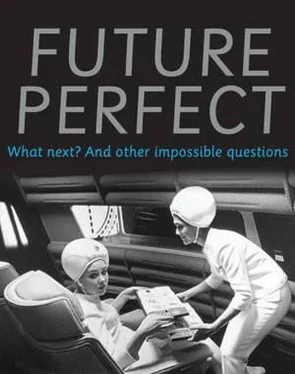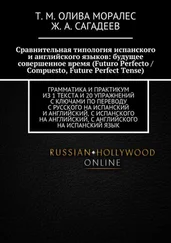The panel nodded, somewhat perplexed at my inventiveness, and moved on to the next topic (Beyond Viagra or whatever).
So far, so plausible. Matt Price wrapped the segment and we repaired to the green room and drinks. My eye suddenly caught the TV monitor that continued to carry the ‘live’ Fox transmission. And there I was, pontificating about nanos and organs. But how come? The session had finished. Then it dawned on me: this was the news, and there was I making it.
A fanciful eruption, a frolic of desperation, was off and running. The next day it featured on page five of The Australian . Then I was called by Radio 2UE for extended comment, and then by a Toowoomba station and the Channel 10 morning show. I passed on Channel Seven’s Today Tonight because I was too busy.
So this was ‘news’ in commercial broadcasting land. For decades I had constructed carefully sourced stories for the ABC science programs, often of momentous import (world poverty, plagues, cures for most things, brain transplants), and the take-up was vanishingly small. Now I had manufactured a totally unoriginal whimsy on Fox TV off the top of my head and the world stampeded.
After 35 years of broadcasting, I still get dumbfounded.
My point is that there is so much factoidal material sloshing around out there that what we need is a means to focus it, rather than simply more stuff. Little discussion on communication these days is about content, very much about distribution.
So how do we get-as writer Brenda Maddox once asked in her book Beyond Babel -beyond the cacophony of too many messages?
To answer that question about the future we need to delve into the past.
In human history there have been two basic kinds of message. One is ‘Here come the Huns, let’s scarper!’ The other is ‘Darren’s looking smug, I think he’s done it with Sonya.’ One is fact, knowledge raising the alarm. The other is gossip, feeding the mill. We need both.
We need gossip, as Professor Robin Dunbar, professor of evolutionary psychology at the University of Liverpool has pointed out in Grooming, Gossip and the Evolution of Language , because it is the glue of social groupings. When our forebears left the shelter of forests, he surmises, and could no longer sit grooming each other, looking for nits and sharing tickles, because the exposure of the plains made us too conspicuous, we had to go in for virtual grooming instead: gossip. Words replaced soothing fingers.
Hence pulp fiction, TV soaps, Hello magazine, text messages on mobile phones and Paris Hilton (she had to get into this at some stage, she’s like a walking computer virus). Should we fret? Well, perhaps not. As the late Douglas Adams pointed out, we don’t condemn the telephone of old simply because Aunty Freida was fond of chatting on it. Phones can still be used to convey the election results or the coming of peace. The technology is neutral.
But what if the noise of chattering becomes so intrusive that it becomes difficult to find-to hear-that other component of communication in a civil society: information and ideas? How come my blathering about nanobots on Fox seemed to give me more exposure than countless science reports on ABC Radio? The answer may be in recognising where we are in this present communications revolution and seeing whether we can steer it to a more coherent (and less noisy) future.
So where do these ‘revolutions’ come from? Ten years ago, in a book on media (Normal Service Won’t Be Resumed) , I quoted geographer Dr Peter Hall, who sees media being pushed by innovations in transport, each on a roughly 50-year spurt. Thus, 150 years ago, with the triumph of the railways, came the electric telegraph (to advise when trains would arrive), primitive phones, the penny post, Pitman’s shorthand and photography. The next revolution, 100 years ago-coinciding with the arrival of cars and planes-brought the typewriter, the phonograph, duplicating machines, linotype, the cinema and radio.
Fifty years ago, with the start of the jet age, we had, network television, photocopying and the programmable computer (ENIAC in the USA, SILLIAC in Australia), multimedia and convergent information technology. The fax, as ever, is an anomaly, having been invented long ago but finding its heyday only in the 1980s. My own office fax was turned off a year ago, as its load of junk paper came to kilos a day and threatened to choke the building.
If Dr Hall is right, what do we make of the present transition and where might it lead? If we follow his formulation and look at links between media and transport, what we find is gridlock and chaos. Trains, first used for primitive transport two centuries ago, are trundling embarrassments, at least in Britain and most of Australia. Jet planes have ‘liberated the masses’, as cars did before, and are a cheap if temporary bonanza. (There is heated debate about the greenhouse cost of passenger planes and much sneering about ‘stag party excursions to Noosa’ by hoi polloi, but less sniping about executives flying to yet more meetings.) We move too much and are beginning to think about the benefits of staying still.
And much the same is true of communication. It is fast, global, overwhelming-billions of people shifting masses of stuff. Yet, at the same time, creativity is in stasis. The Australian movie industry has rarely looked weaker; theatre is struggling; the bulk of television is reality/soap shows plus unlimited cops. Leading thespians tell me they now train corporate executives in public speaking because acting roles have dried up. If the technology of production is so cheap and flexible, why isn’t everyone and his best mate making drama, shooting documentaries, being creative?
But it’s all there on YouTube.com, comes the reply. Instead of elite hand-me-downs, you have programs for the people from the people. The same with bloggers. Newspapers and TV may face a collapsing audience but the Internet offers millions of independent sources. Get modern! But does this amount to much more than home movies on the world stage, rant in lieu of journalism?
Is this present messy revolution, then, really a shakedown of powerful owners and snobby public vehicles (ABC, CBC, BBC) in favour of a decentralised, freewheeling new media? Is it, as Malcolm Long (former CEO of SBS and of the Australian Film, TV & Radio School) asserts, as important as Gutenberg’s printing press and as significant as the first industrial revolution? Perhaps. It depends on what happens next, on how we choose the communications future.
* * * *
It is certainly true that the speed of service can be staggering. Bill Dutton, the first ever professor of Internet studies, who is based at Balliol College, Oxford, told me of his sudden realisation that it was quicker to look up a fact on his computer than to cross the room and pick a book off his shelf. But it helps to know what you are looking for.
Two gaps persist. One is for those who don’t know what they are looking for, because they have never heard of it. This brings up the supposedly elitist Reithian big idea that the noble ambition of public broadcasting is to offer the populace something they don’t yet realise they want. If you are convinced you are very much a consumer -even of life-and not much a citizen , then, living on Planet Selfwill not encourage you to explore beyond your self-defined universe.
For example: I was once asked to address second-year biomedical students at the University of New South Wales, where I am a visiting professor. I based my talk on two premises: that none of them had ever heard any of my programs (true); and that they all had some topical awareness and would therefore be interested in the science-related news stories of the previous week (false).
Читать дальше












